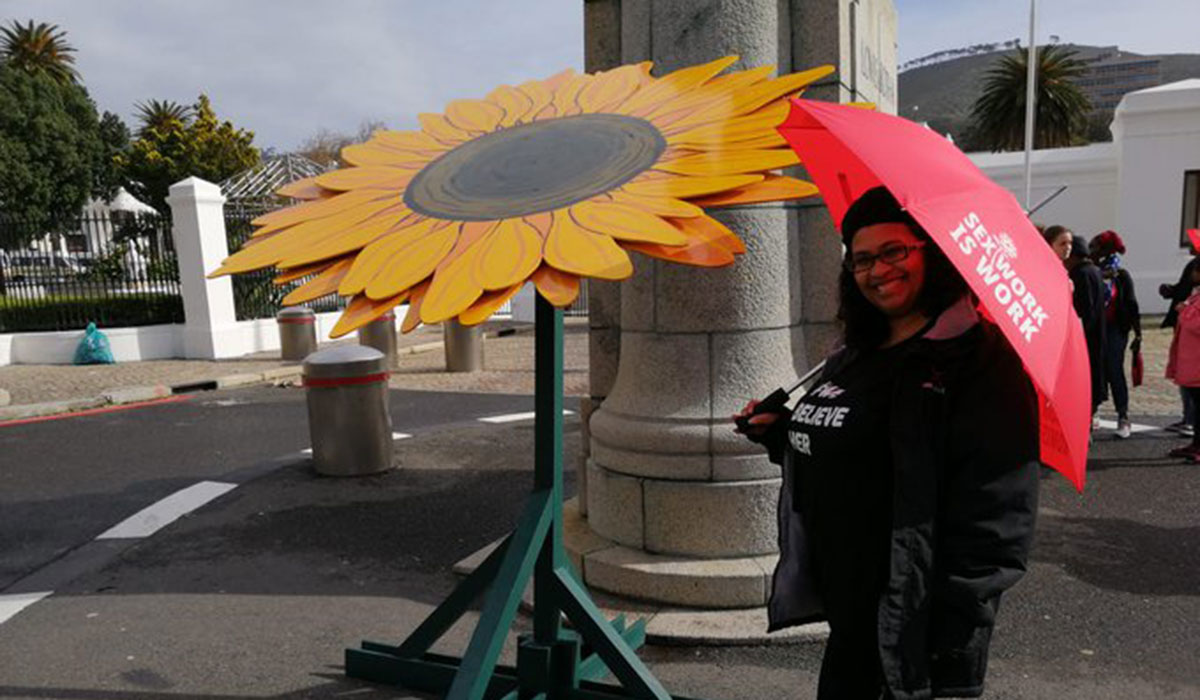In 2016, acting in his capacity as Deputy President, Cyril Ramaphosa launched the South African National AIDS Council (SANAC) ‘National Sex Work Sector Plan 2016-2019’ and presented the leader of the Sex Work Sector, Ms Kholi Buthelezi, with a sunflower as a symbol of his solidarity to decriminalise sex work.
Since then, the Asijiki Coalition has taken forward an annual campaign calling on the now President, Cyril Ramaphosa, to keep his promise and the sunflower has become the symbol of sex workers and their allies to rally around to push for law reform and to show the evidence that decriminalisation is the only legal option that can guarantee sex workers’ their rights and their protections.

The Asijiki Coalition launched the #sexworkpromise campaign today online, today is International Sex Workers Day, a day remembered as in 1975 a group of sex workers barricaded themselves into a church in Lyon in France and called for an end to arrests and violence against them. Their barrier read ‘Our children do not want their mothers to go to jail.’ Their media activism attracted attention and started a strike of sex workers all over France. This activism is seen as the precursor of increasing sex worker led advocacy for decriminalisation across Europe and the UK.
Let the sunflower symbol and #sexworkpromise take forward the call for decriminalisation of sex work in South Africa. It has been far too long with empty promises, so keep the promise and decriminalise sex work!

The Department of Justice and Constitutional Development (DOJ) started engagements in February 2022 with different stakeholders regarding proposed policy options to the current pieces of legislation that criminalise both the selling and buying of sex. The minister John Jeffries has met with the pro-decriminalisation sex work sector and is meeting with other sectors such as those supporting forms of legalisation and/or continued criminalisation.
Selling sex in a criminalised environment exposes sex workers to increased risks of Gender-Based-Violence from clients, intimate partners, the police, and law enforcement agencies. Decriminalising sex work will ensure that sex workers will be afforded safer working conditions and better access to public services, particularly around their own health, safety, and security.
We need the voices for decriminalisation to drown out all the others. We have the evidence and now we need sex workers and their allies to speak up and make sure that the promised option of decriminalisation is kept.
Jayne Arnott
Sex Worker Rights’ Specialist
Sonke Gender Justice


